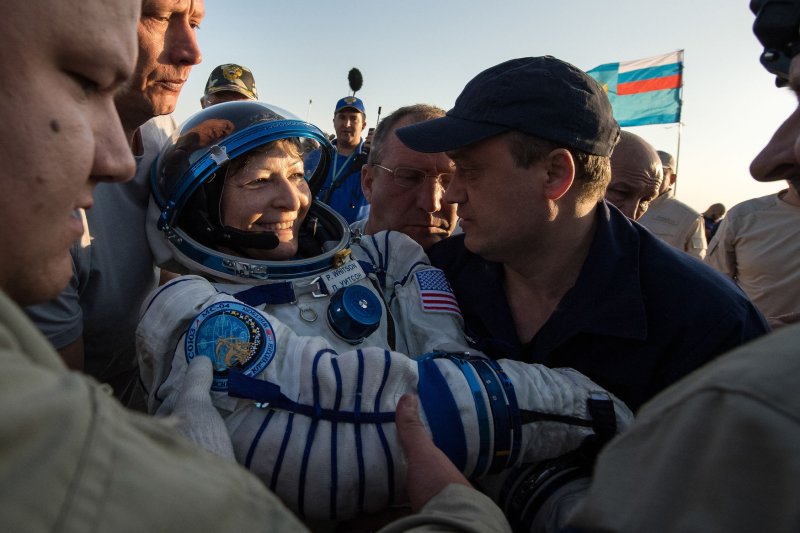 Astronaut Peggy Whitson is home safe after spending a record 288 days on the International Space Station.
Astronaut Peggy Whitson is home safe after spending a record 288 days on the International Space Station.
Whitson touched down in Kazakhstan at 9:21 p.m. EDT on Saturday aboard a Soyuz capsule. Whitson was joined for the trip home by NASA colleague Jack Fischer and cosmonaut Fyodor Yurchikin of Roscosmos.
Astronaut Peggy Whitson home safe after record stay aboard space station
'Most bizarre dinosaur ever found' is missing evolutionary link – study
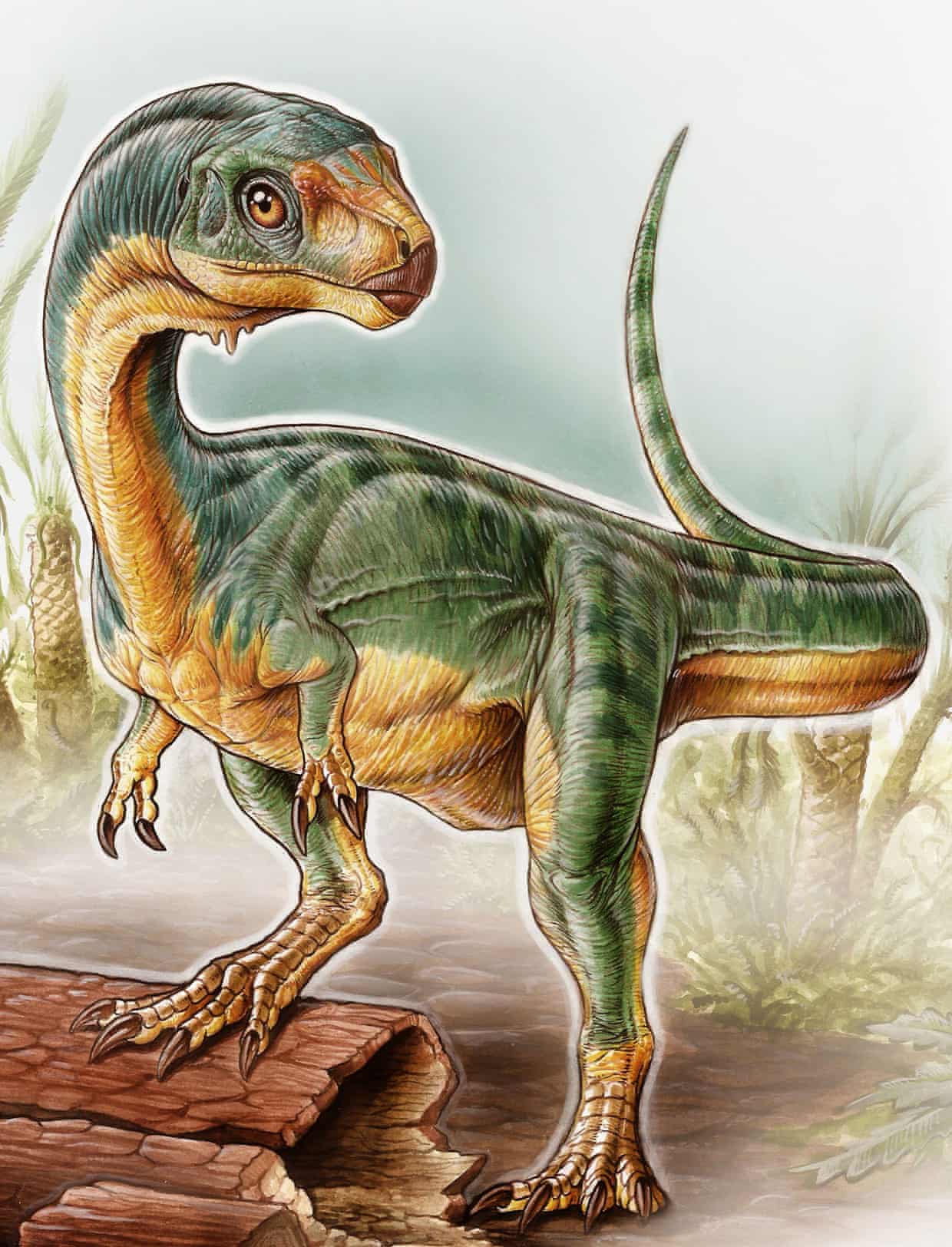 An unusual vegetarian dinosaur with the silhouette of a flesh-ripping velociraptor, whose fossilised remains were unearthed in southern Chile 13 years ago, is a missing link in dinosaur evolution, researchers have said.
An unusual vegetarian dinosaur with the silhouette of a flesh-ripping velociraptor, whose fossilised remains were unearthed in southern Chile 13 years ago, is a missing link in dinosaur evolution, researchers have said.
A revised assessment of the kangaroo-sized Chilesaurus diegosuarezi , reported in the journal Biology Letters, bolsters a theory unveiled earlier this year that threatens to upend a long-standing classification of all dinosaurs.
U.S. scientists fix disease genes in human embryos for 1st time
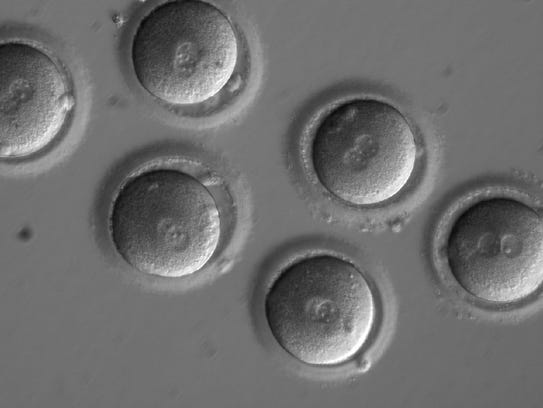 For the first time, scientists working in a U.S. lab have used gene editing to correct a disease-causing mutation in viable human embryos, according to scientific paper published Wednesday.
For the first time, scientists working in a U.S. lab have used gene editing to correct a disease-causing mutation in viable human embryos, according to scientific paper published Wednesday.
The work, reported in Nature, could be a step toward genetically modified babies. But the altered embryos created in the study were quickly destroyed and never intended to be implanted in a woman — a step that would be illegal under current regulations in the United States and many other countries.
Under pressure, Western tech firms bow to Russian demands to share cyber secrets
Western technology companies, including Cisco, IBM and SAP, are acceding to demands by Moscow for access to closely guarded product security secrets, at a time when Russia has been accused of a growing number of cyber attacks on the West, a Reuters investigation has found.
Russian authorities are asking Western tech companies to allow them to review source code for security products such as firewalls, anti-virus applications and software containing encryption before permitting the products to be imported and sold in the country. The requests, which have increased since 2014, are ostensibly done to ensure foreign spy agencies have not hidden any "backdoors" that would allow them to burrow into Russian systems.
Molecule essential to life found near newborn sun-like stars
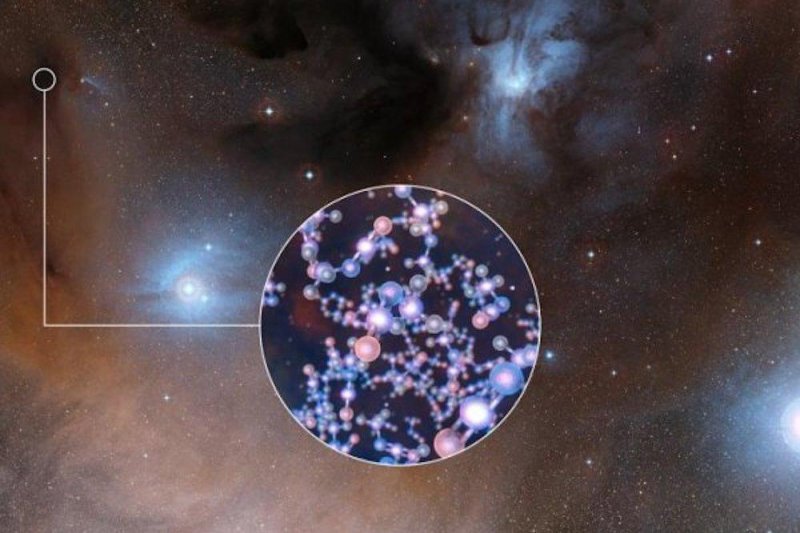 Two teams of astronomers have discovered methyl isocyanate, an organic compound and chemical building block for life, surrounding newborn sun-like stars.
Two teams of astronomers have discovered methyl isocyanate, an organic compound and chemical building block for life, surrounding newborn sun-like stars.
"This family of organic molecules is involved in the synthesis of peptides and amino acids, which, in the form of proteins, are the biological basis for life as we know it," researchers explained in a news release.
The infant star system, IRAS 16293-2422, has previously yielded evidence of sugar molecules.
More...
Antibiotic-resistant bacteria first emerged at least 450 million years ago
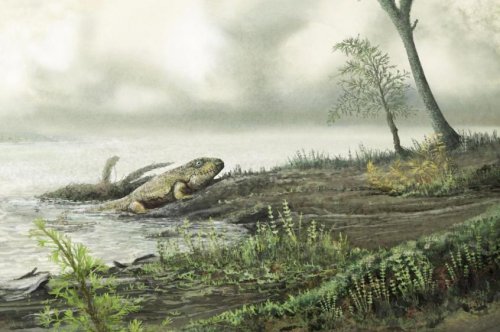 Superbugs, or enterococci bacteria, have been honing their defensive capabilities for at least 450 million years.
Superbugs, or enterococci bacteria, have been honing their defensive capabilities for at least 450 million years.
As a new survey of the evolution of antibiotic resistance revealed, the earliest relatives of modern superbugs -- microbes undeterred by antibiotics -- emerged prior to the arrival of the dinosaurs.
"By analyzing the genomes and behaviors of today's enterococci, we were able to rewind the clock back to their earliest existence and piece together a picture of how these organisms were shaped into what they are today," researcher Ashlee M. Earl, leader of the Bacterial Genomics Group at the Broad Institute, said in a news release. "Understanding how the environment in which microbes live leads to new properties could help us to predict how microbes will adapt to the use of antibiotics, antimicrobial hand soaps, disinfectants and other products intended to control their spread."
Philippine's Duterte: Sorry, I Can’t Promise WH Visit

“I cannot make any definite promise. I am supposed to go to Russia; I am supposed to go to Israel,” he said, according to Yahoo News.
Trump's invitation to Duterte, who has been accused of backing the vigilante execution of people involved in the drug trade and threatening journalists and political opponents, drew criticism from human rights groups. He invited the controversial leader to the White House without consulting the State Department or the National Security Council.
TVNL Comment: Trump did not bother to inform the State Department before issuing an invitation to this murderer who boasted of being willing to '...execute three million drug addicts."
More Articles...
Page 6 of 61

 Science Glance
Science Glance






























